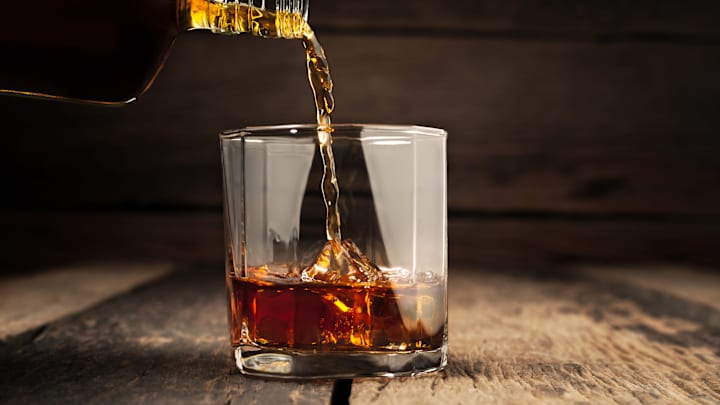This might be common knowledge for some, but it’s worth a refresher before you go out and buy a bottle. Let’s start with the basics.
What makes a whiskey bourbon?
The quick answer is the law. Making bourbon is an exceedingly technical exercise, and requires that the whiskey meet rigid criteria. The Federal Standard of Identify for Bourbon stipulate what is and what isn’t bourbon. For a whiskey to call itself bourbon, its mash—the mixture of grains from which the product is distilled—must contain at least 51 percent corn. The rest of the mash is usually filled out with malted barley and either rye or wheat.
Then, the mash must be distilled at 160 proof or less and put into the barrel at 125 proof or less, It also can't contain any additives. The distillate needs to be aged in a new charred oak barrel. If you distill a whiskey in your kitchen that meets all of these standards, congrats—you’ve made bourbon. Also, you’ve broken the law. The ATF will be on its way shortly.
What’s the difference between scotch and whiskey?
The main difference between scotch and whiskey is geographic, but it also involves ingredients and spellings. Scotch is whisky—no e—made in Scotland, while bourbon is whiskey made in the U.S., generally in Kentucky. Scotch is made mostly from malted barley, while bourbon is distilled from corn. If you’re in England and ask for a whisky, you’ll get scotch. But in Ireland, you’ll get Irish whiskey (yep, they spell it differently).
Is Tennessee whiskey bourbon?
Yes and no. The difference between Tennessee whiskey, like Jack Daniel’s, and bourbon is that after the spirit is distilled, Tennessee whiskey is filtered through sugar maple charcoal. This filtering, known as the Lincoln County Process, is what distinguishes Tennessee whiskey from your average bourbon, like Jim Beam. The name bourbon actually comes from an area known as Old Bourbon, around what is now Bourbon County, Kentucky.
On top of these types of whiskey, we also have rye whiskey, which can refer either to American rye whiskey, which must be distilled from at least 51 percent rye, or Canadian whisky, which may or may not actually include any rye in its production process.
